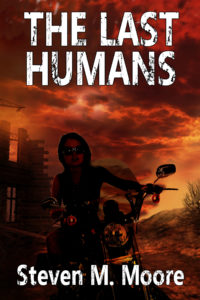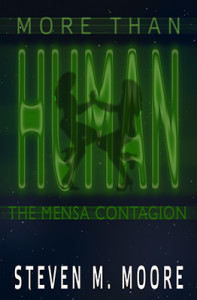I’m not Dr. Asimov, Part Two…
I’ve mentioned settings before, and I’ve mentioned Science News before too—where I often start when developing settings and background information for my sci-fi stories (one can dive deeper into the topics of their articles by using the references at the end). Recently I wrote an article explaining why I’m not Dr. Asimov. Consider this article a fun continuation.
First, let me provide two excerpts taken from end notes of two of my sci-fi novels, More than Human: The Mensa Contagion and The Last Humans.
“I’ve read about Mars colonies since my junior high days—I’ve always thought that the space opera adventures were a bit too optimistic—but reports about recent advances were taken into consideration too. Among these are:
Bruce Bower, “Extreme Teams,” Science News, 11/29/2014.
NY Times special issue on Mars, 12/9/2014: “On Mars,” by Kenneth Chang; “A One-Way Trip? Many Would Sign Up”; “Looking to a Neighbor for Help,” by Dennis Overbye; “Covering Mars Opened a New World,” by John Noble Wilford; and “Rover Finds Stronger Potential for Life,” by Marc Kaufman.
Christopher Crockett, “Martian Aurora, High-Altitude Dust Surprise Scientists,” Science News, 4/18/2015.”

“There will be water shortages in the future as climate change marches inexorably on. One possible partial answer can be found in desalination plants like those considered in this novel. The briefing Penny received about them was modeled after an article in Science News; that article, “Quenching Society’s Thirst” (8/20/2016 issue, p. 22), is an up-to-date presentation of issues involved and possible future development of necessary technologies. Without water there is no life.”
These excerpts illustrate how important Science News is to me in my writing.
I’m often surprised at how weirdly my mind works. I’d just posted that first article about Dr. Asimov, and I mentioned that like him, I use Science News. Somewhere I’d read that he was a subscriber, but I began to wonder if I was remembering incorrectly.
The next issue of Science News came out perfectly timed with an editorial about longtime subscribers. Some dots were connected in my mind. I decided to ask them if they could confirm that he was a longtime subscriber.
Their answer starts with, “Thanks for writing us! You prompted a fun search in our archives. We were able to confirm that Isaac Asimov was, in fact, a longtime Science News subscriber.”
They sent me a PDF from their March 13, 1982 issue. (I was still in Colombia at the time and didn’t subscribe.) They were celebrating their 60th anniversary, and the grand master of sci-fi sent them congratulations and notes, “I am pleased that for one-third of this stretch of time, I have been (and still am) a subscriber.” He signs his note “Isaac Asimov, Author, Professor of Biochemistry, Boston Univ. School of Medicine.” He’d just resumed writing sci-fi with Foundation’s Edge, but I guess he wanted to display his academic credentials more, and he’d authored several popular science books.
So now I only have to remember where I saw that Isaac was a Science News subscriber. It certainly wasn’t in that congratulatory note. Dr. Asimov gave several interviews over his productive writing life, though, so maybe one of those was the source.
In any case, Happy New Year to Science News and all readers of this blog. End this decade in grand style, but safely.
***
Comments are always welcome.

More than Human: The Mensa Contagion. An ET virus lands on Earth and creates Homo sapiens 2.0—not the kind of ET invasion imagined by the classic sci-fi writers! But the story doesn’t end there. The new humans create a new society that will leave readers of sci-fi smiling…and they decide to colonize Mars. One reviewer compared this single novel, an epic glance at a possible future for human beings, to the Mars stories of Kim Stanley Robinson, an exceptional honor. Available on Amazon and Smashwords and all the latter’s affiliated retailers (iBooks, B&N, Kobo, etc.).
Around the world and to the stars! In libris libertas!!

December 31st, 2019 at 6:38 am
Steven,
I agree with the need for reading Science News to write good science fiction. Reality is an inspiration for the mind to create better sci-fi.
December 31st, 2019 at 7:07 am
It’s curious that Asimov’s sci-fi wasn’t much of an extrapolation of current science and technology. Too far in the future. Positronic brains for robots and his FTL “jumps” were created long before computers and the current advances in astrophysics. That’s OK. He was a scientist and wanted to keep learning science.
r/Steve
December 31st, 2019 at 1:49 pm
Have you read his autobiography, I, ASIMOV? Perhaps it was in there. I seem to recall a bit about how he did his research in there but it’s been so long since I read it that I can’t remember specifics.
January 1st, 2020 at 6:05 am
Hiya Scott…and thanks, buddy. I didn’t even know Asimov had an autobiography! I’ll have to try to find a copy. Needless to say, my knowledge about his Science News predilections couldn’t have come from there.
As I explained above, his sci-fi stories weren’t nearly the extrapolation of current science and technology that we often see. He started publishing in 1938 with a short story.
r/Steve